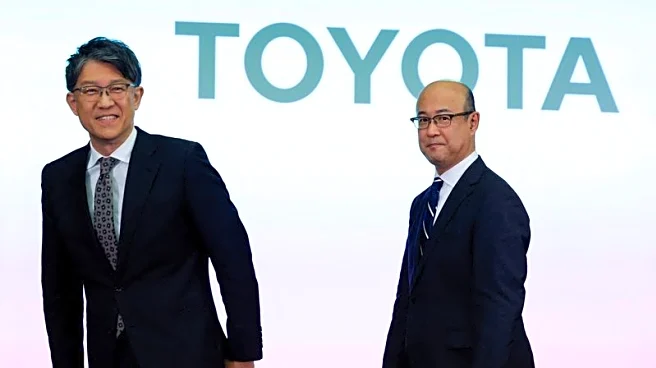What is the story about?
What's Happening?
Ubisoft has announced significant changes to its Assassin's Creed franchise following the departure of Marc-Alexis Cote, who led the creative vision for over two decades. The restructuring involves a $1 billion investment from Tencent, leading to the creation of Vantage Studios, a new subsidiary that will oversee Assassin's Creed, Far Cry, and Rainbow Six. Tencent holds a 25% stake in Vantage Studios. The leadership of Vantage Studios will be under Charlie Guillemot and Christophe Derennes, relatives of Ubisoft CEO Yves Guillemot. Ubisoft plans to shift Assassin's Creed to a franchise-as-a-service model, introducing the Assassin's Creed Hub, which will serve as a platform for launching new games and updates.
Why It's Important?
The restructuring marks a pivotal shift in Ubisoft's strategy, potentially impacting the future of its major franchises. The move to a franchise-as-a-service model could alter how players engage with Assassin's Creed, emphasizing continuous content delivery and monetization. Tencent's investment and involvement may influence Ubisoft's operational decisions and creative directions, affecting stakeholders such as employees, gamers, and investors. The departure of Marc-Alexis Cote, a key figure in shaping Assassin's Creed, raises questions about the franchise's future direction and creative leadership.
What's Next?
Ubisoft plans to release several new Assassin's Creed projects, including a Black Flag remaster and AC Hexe. The company aims to launch nine games in the next two years, leveraging the Assassin's Creed Hub for distribution and updates. The transition to Vantage Studios may lead to further organizational changes and strategic decisions, as Ubisoft navigates its partnership with Tencent. Stakeholders will be watching closely to see how these developments affect the franchise's popularity and market performance.
Beyond the Headlines
The restructuring could have broader implications for the gaming industry, highlighting the growing influence of major investors like Tencent in shaping company strategies. Ethical considerations may arise regarding creative control and the impact of corporate decisions on artistic integrity. The shift to a franchise-as-a-service model reflects a trend towards ongoing engagement and monetization in gaming, potentially influencing industry standards and consumer expectations.

















